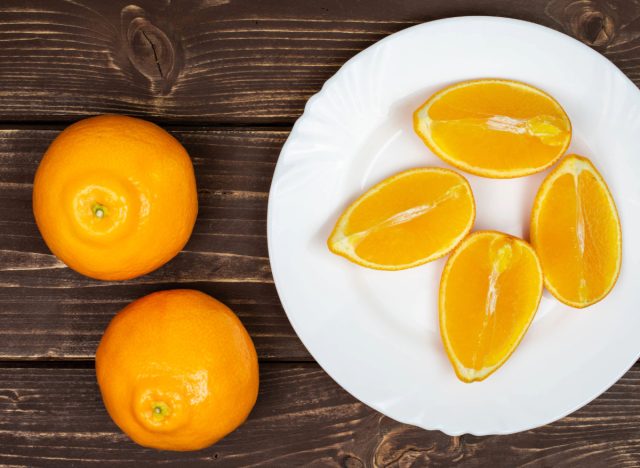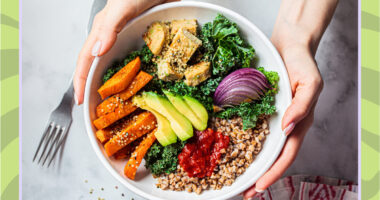Fruits and veggies are so important when it comes to maintaining a healthy, well-balanced diet. It’s especially crucial to consume citrus fruits and vegetables like tomatoes and broccoli so you can get enough vitamin C. This vitamin is necessary for growing and repairing body tissue, collagen production, and maintaining muscle. However, as with all vitamins, there’s a certain dosage you should make sure you take daily. We’re here to tell you how much vitamin C you need to preserve muscle mass as you age.
“Vitamin C plays a crucial role in muscle health due to its antioxidant properties, which help combat oxidative stress—a condition that can lead to muscle damage and inflammation,” explains Amy Goodson, MS, RD, CSSD, LD, a registered dietitian and certified specialist in sports dietetics who sits on our Medical Expert Board.
Now, let’s dive into the specific ways taking vitamin C can benefit your muscle health, along with how much of it you should take.
Why Vitamin C Is So Important
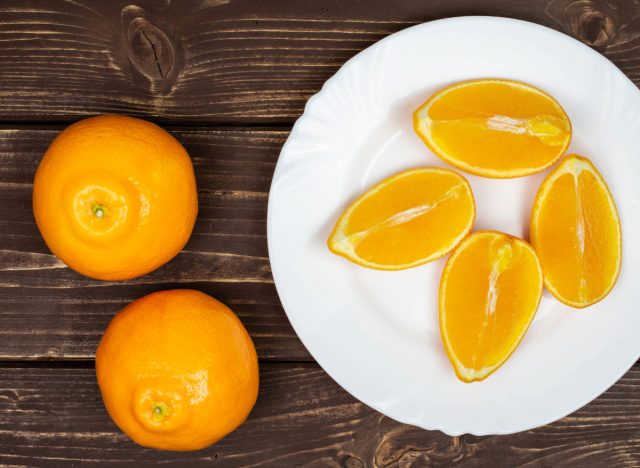

Vitamin C is a vital player in preserving muscle mass, and here’s why.
- Collagen synthesis: Collagen plays a major role in preserving the integrity and repair of your ligaments, tendons, and muscles. “Vitamin C is essential for the synthesis of collagen, a major structural protein in muscle tissues,” Goodson shares.
- Antioxidant protection: “Vitamin C helps neutralize free radicals produced during intense physical activity,” Goodson explains. “By reducing oxidative stress, it helps prevent muscle fatigue and damage.”
- Immune support: It’s crucial to have a strong immune system for your overall health and wellness, along with muscle recovery. “Vitamin C supports immune function, aiding in the repair and recovery processes post-exercise,” says Goodson.
- Iron absorption: Vitamin C aids in the absorption of nonheme iron, “which is important for oxygen transport and energy production in muscles,” Goodson adds.
RELATED: Popular Foods With More Vitamin C Than an Orange
The Benefits of Maintaining Muscle Mass as You Age
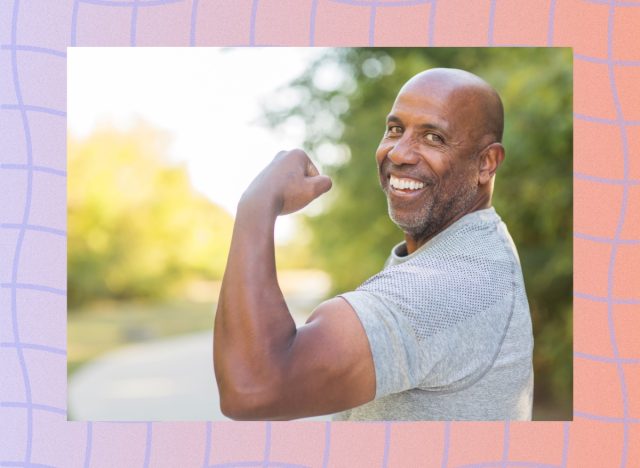

Because muscle mass decreases with age, it’s important to maintain and build on what you have. Here’s a list of all the goodness that comes with strong and healthy muscles.
- Better balance and mobility: Strong muscles help with joint stability, thereby lowering your chances of suffering from falls and fractures.
- Metabolic health: “Muscle tissue is metabolically active, helping to maintain a healthy weight and manage conditions like type 2 diabetes,” Goodson points out.
- Bone health: When you move and exercise, your muscles place force on your bones. “[This stimulates] bone remodeling and maintaining bone density,” explains Goodson.
- Improved quality of life: By keeping your muscles strong, you increase your ability to live independently and stay active.
- Chronic disease prevention: Sarcopenia is the loss of lean muscle as you age. Preserving muscle mass can decrease the risk of sarcopenia, metabolic syndrome, and cardiovascular disease.
How Much Vitamin C Adults Should Take Daily for Muscle Preservation and Overall Health
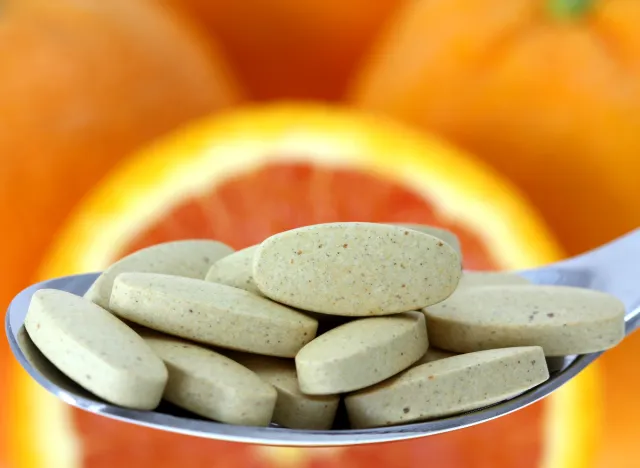

When it comes to vitamin C, the recommended dietary allowance (RDA) depends on gender. Adult males should take 90 mg daily, and females 75 mg per day.
“For muscle preservation and overall health, it’s generally advised to meet these RDAs through a balanced diet,” Goodson tells us. “Higher doses (up to 2000 mg per day) can be taken safely but should be discussed with a healthcare provider. Vitamin C is a water-soluble vitamin, so your body will discard what it does not need.”
If you’re curious about boosting vitamin C in your daily diet, Goodson assures it’s abundant in many veggies and fruits. Here are some items to add to your shopping list:
- Citrus fruits: oranges, limes, lemons, and grapefruit
- Berries: blueberries, strawberries, blackberries, and raspberries
- Vegetables: Brussels sprouts, broccoli, bell peppers, and spinach
- Other fruits: mango, kiwi, pineapple, and papaya
- Tomatoes and tomato juice
Alexa Mellardo
Alexa is the Mind + Body Deputy Editor of Eat This, Not That!, overseeing the M+B channel and delivering compelling fitness, wellness, and self-care topics to readers. Read more about Alexa

